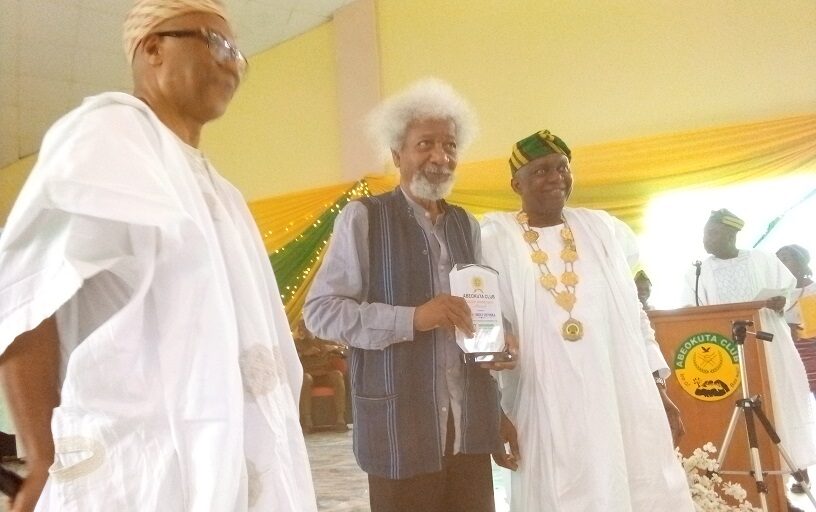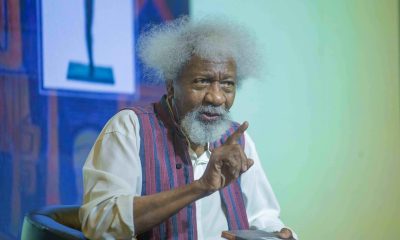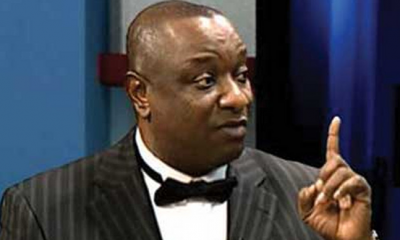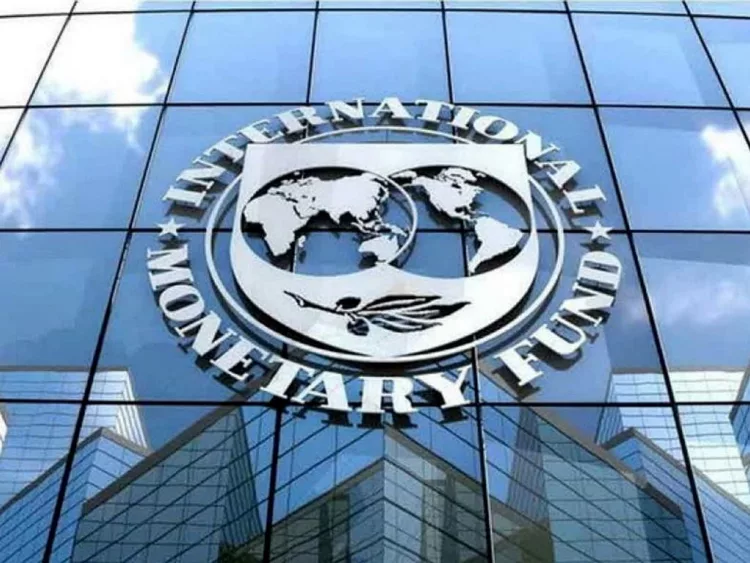Nobel Laureate, Professor Wole Soyinka has strongly condemned the noise generated by the Muslim/Muslim presidential ticket as Nigerians head towards general elections next year.
According to him such agitation either for or against Muslim/Muslim ticket, which is currently heating up the polity, is unnecessary.
He said uproar was a reflection of how the country has been fractured along religious lines and its citizens made to look different from one another right from childhood.
He stated this without mincing words on Tuesday 2 August in Abeokuta, Ogun State as moderator of the lecture/interactive session organised by the historic Abeokuta Club to mark its 50th anniversary.
The theme of the lecture was: Good Governance or Misgovernance: The Contract called Democracy.
The literary icon set the tone for the lecture by saying that the gathering was very timely, adding that he hoped it would help clarify many things as the country heads towards the 2023 general election.
“This gathering here could not have been more timely. In fact I am hoping that a series of this kind of encounter will take place all over the nation between now and the long awaited day next year. I think it will help many people clarify a number of things in minds before that day and maybe move a little bit away towards pulling us out of the morass in which we find ourselves, if we want to be very honest about this.
“I think we’ve all come here with a lot of negative image hanging on our necks. And also some measure of hope, some modicum of illumination,” Soyinka said.
The Nobel Laureate, acknowledging the presence of secondary school students in uniform whom he said events like that for him were primarily for, also used the opportunity to condemn the controversies triggered by the Muslim/Muslim presidential ticket and whether students should be allowed to wear religious garbs to schools.
“There is one other thing going on in my mind. And I think we have the experts here who will talk about it. There are some school children over there. And one wonderful thing about them for me is that they are in uniform. In other words I cannot tell which one is a Christian, which one is a Muslim, which one is an Orisa worshipper, which one is a Zoroastrian, which one is a Buddhist. They are school children.
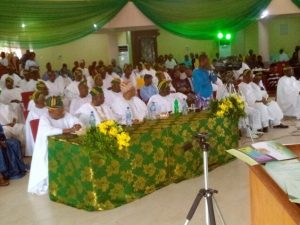
“They are equal and they are being encouraged to see one another as human beings, not as separate creatures. And I want to be informed if it is against democracy that schools insist that uniforms be worn by children so that they are not distinguished in a very dramatic way. So that they do not look at one another as different.
“So now I’m talking to religionists. I’m saying why do you want to create such marked differentiation at that age, that impressionable age, when we need to teach our children to look at one another as equals, as the same people, the same entitled creatures of society?
“These are issues which I hope we will also touch. Because when we hear expressions like Muslim/Muslim ticket, Christian/Christian ticket, Orisa/Orisa worshipper ticket. This is where it all begins. This is where the nervousness begins. This is where the anxiety and the phobia begin. This is where it begins, when you teach the children to be different at an age when they are so impressionable. These are issues I hope you will help to resolve,” Soyinka maintained.
Soyinka also used the opportunity to emphasize not only the rights of the people to elect their representatives, but also the need for those representatives to be allowed to do their jobs. He went down memory lane citing the unfortunate incidents that played out in 2009 in Ogun State when the then Governor Otunba Gbenga Daniel locked out members of the State House of assembly for 15 months.
“We are gathered here in Abeokuta where something remarkable happened some years ago because Democracy, everybody says and agrees, is not just about elections. But it also involves elections. An election takes place for a purpose. The major purpose being to elect people to speak for us. We transfer to these representatives our burdens, our anxieties, our desires. And we go through this exercise, this expensive exercise by the way often fraught with danger. It’s amazing, it shouldn’t happen but people actually lose lives over elections.
“And so when you elect people to represent you, one expects them not only to do their job but be left alone to do their job, not to have their mission, their responsibility being truncated by any means. That is usually known as a coup d’etat. And yet in this state, in this very town elected representatives were locked out of their assembly hall for roughly 15 months.”
Soyinka however said he wasn’t trying to reopen old wounds but was only asking questions, adding that the said governor had since apologized to him.
“Now I am not trying to rake up old wounds. Don’t misunderstand me. No. I am asking questions. I am asking for illumination. And we cannot go forward if we do not take stock of the past so that we do not repeat or allow the same errors to be committed.
“For instance I can tell you that the governor who is responsible for that coup detat has since apologized to me. He came after he left office. He apologized. So I am not trying to roast him or put him on trial. And in fact normally, it should be a dead issue.”
He also wondered why he should be blamed for not supporting the then President Olusegun Obasanjo’s bid for re-election as when that coup detat was happening he turned a blind eye and pretended as though the issue had been resolved.
“But unfortunately. And this is why I ask the question. What do we understand by democracy? Because when the person who was in charge of the whole nation at that time wanted his re-election and lost, some of us are being accused of being responsible for his fate,” he said, adding that when the legislators were locked out, he put a call through to the President at that time, especially when he made the governor his campaign manager.
“And eventually I picked up the phone and called the President that time, especially when he then made that governor his campaign manager for re-election. I phoned him and said, ‘What signal are you sending to people, and especially to the Ogun electorate from whom you expect support? You are appointing as your campaign manager somebody who has truncated in such a blatant way, in such an insulting way, the will of the people of Ogun State, who did nothing.
“An appeal was made to you. You pretended it wasn’t happening. And now to add insult to injury, you named that person your campaign manager for election. What democratic message do you think you are sending out? I would tell what his reply was. He said, ‘Ah Prof, do you mean they haven’t sorted out that problem yet?’ That’s the president of this nation. And yet some idiots expect somebody like me, without knowledge, without encounter, to come out and support the attempt of that president to remain in power.
“I want to understand what kind of democratic understanding even the electorate themselves carry to the polls. And so when I come out and say ‘Do not vote for this and this person I know what I am talking about. I know what crimes they have committed against the electorate. I know what undermining they have done to the very principles of democracy. And I know what dereliction of duty, what tacit encouragement and support they have given to those who truncate the process of democracy.
“The question on my mind really, and when I use the word, democracy, I am not quoting it in general terms. But I am hoping to be enlightened before I leave here what we understand by democracy. What the electorate understand by democracy, what the rulers and the commentators even understand by democracy. And why do I say this? Why is this uppermost in my mind?
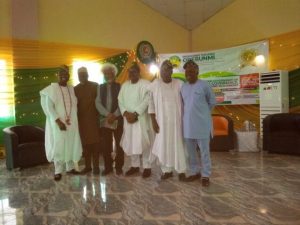
“I hope in the process of our deliberations you will be able to enlighten me what is expected of those who have been disenfranchised, whose votes have been taken away when their representatives are not allowed to represent them. What else is the meaning of democracy?” Soyinka asked.
Human rights lawyer, Mr Femi Falana, SAN, who spoke on the theme, Governance Structure and Rule of Law, also supported Soyinka’s view on the Muslim/Muslim presidential ticket debate.
Falana, while marshaling out his points, bemoaned the rot that had eaten deep into the fabric of the Nigerian political system.
The highly respected lawyer said that unlike in the Second Republic when politicking was issues and programmes based, the current political dispensation is characterized by primitive accumulation of wealth and primordial concerns about Muslim/Muslim or Christian/Muslim ticket.
“But in the Second Republic here, in this part of the world, we were talking about the four cardinal programmes of the Unity Party of Nigeria, UPN – Free education, free health, rural integration and full employment. But today the only cardinal programme is money, money, money,” Falana said.
Falana also condemned the fuss some Nigerians are making about Muslim/Muslim ticket and the way it has heated up the polity, adding that in the Second Republic there was nothing like that.
“Prof was just talking about religion now. In the Second Republic, here, even though you have a large Muslim population in Ogun State, nobody bothered. Onabanjo and Soluade – the same religion. In Lagos, Jakande and Jafofo – Muslim. Even in Oyo State where you also have a large Muslim population, Bola Ige and Afolabi were Christians. Nobody bothered. But today it is all about Muslim/ Muslim ticket or a Christian/Muslim. And all of them also patronize Babalawo.
“A Christian president in this country, in 2014, allocated 4.7 billion naira for what they called Spiritual Consultation – to consult marabouts. And that year they gave 6 billion to CAN to pray for the man. Unfortunately, he didn’t win the election with all the prayers,” Falana recalled.
The human rights lawyer, however, maintained that Nigeria is in crisis, what with the reckless manner governance and security have been left alone for the presidency to handle and the seeming helplessness and nonchalance of officials at the state and local government levels.’
He then urged Nigerians to hold governments at all level accountable, and not only the federal government, regretting,, for instance, the lack of knowledge of the people at the grassroots of the budgets of local government councils. .
“On a very serious note our country is in crisis. And the crisis is compounded by the refusal of our governors to run the country well. Under this constitution, it is not the business of Abuja alone to secure all of us. But we are all made to believe Oh the Nigeria police force is not working because the country is not safe. No.”
Falana also said that there is no government in place in Nigeria since the primary purpose of governance, which is to take care of the welfare and security of the people has been defeated.
“Under the Nigerian constitution, popular democracy is the foundation of democracy in Nigeria. Everybody must participate in electing their representatives. Secondly, the welfare and security of the people shall be the primary purpose of governance. Once you do not take care of the security of the people and their welfare you have no government in place. And that is the position in Nigeria too.
“But the mistake we all make about governance in Nigeria, is that we all look towards Abuja alone. We all discuss Abuja budget. As industrialists, we are not worried about the budget of the states. In fact, no local government has a budget in Nigeria today. So we must start with what is the nature of governance in Nigeria. We have the Federal government, the State government and the local government.
“Lagos is the fifth largest economy in Africa. The budget of Lagos is not discussed. Ogun State today is one of the largest Internally Generated Revenue, IGR, earners. But are many of you bothering about the budget of Ogun State, not to talk of local government?
“Prof was just talking about secondary school students. Two weeks ago it was published and circulated that secondary school students in Ogun State were sitting on bare floor and writing examinations. The government was embarrassed. The following day, chairs and tables were moved to the school. But there are still such schools in Ogun State.”
Falana then lamented the politics of stomach infrastructure and vote buying that recently played at the Ekiti governorship election and the just concluded Osun State governorship election. He said the Peoples Democratic Party which won the governorship elections in Osun State took a cue from the All Progressives Congress, which had made vote buying the order of the day in Ekiti State.
“And at the end of the day, a dancer, beautiful dancer, was the winner of the election. And the whole thing was this. The PDP said where the APC gave three thousand, make it five; where they give five thousand, make it ten; where they give ten thousand, make it twenty.”
Falana also spoke about other issues such as the National Council of States, the Nigeria Police Council and the seeming helplessness of governors to solve the security problems in their states because of their inability to free themselves from federal might and tackle insecurity in their states,
He cited the case of Governor Kayode Fayemi of Ekiti State and the governor of Zamfara State, saying “Our governors are not ready to defend our democratic rights.
“I think the Governor of Ekiti State, Kayode Fayemi as Chairman of Nigerian Governors Forum said publicly, very embarrassingly, ‘We wanted to import drones to monitor security in the forest in our states. but the National Security Adviser, has refused to give us a licence.
“I beg your pardon. A National Security Adviser? Just like Adesina, Special Adviser on Media, so the man is adviser to the President on security. He has no executive powers. So you can’t refuse an application by a governor.
“Yet the president said, ‘Two governors in the South West came to me, to complain about security. I said, Go back to your state and secure your people.’ So if the President concedes that it is your duty to secure your people why are you rushing to Abuja?
“On rule of law, all of us here must challenge our governments. Killings are taking place here. Ogun State is next to Osun State in the South West, with respect to ritual murder. Now people are using human blood for politics. There are reports every day by the police. They parade the suspects but they are never prosecuted because we don’t have rule of law in Nigeria. We have rule of men. Therefore, let us all rise up to fight for the rule of law for our country.
It was indeed more than just a lecture because it was an interactive session in which both discussants and audience rubbed minds. The audience asked questions to which the discussants responded. And at the end of the day plaques were presented to Soyinka and Falana for their invaluable contributions to good governance in the country. The occasion was chaired by renowned technocrat and banker, Mr Fola Adeola.
Other discussants who did justice to their respective topics were Prof Is-haq Oloyede who spoke on the topic, Education and Human Capital Development; Olootu Ogooluwa Bankole (SMEs and Economic Growth; Chief Sunday Oduntan (Steady Energy Generation and Distribution as Catalyst for Economic Growth); and Dr. Gbenga Adeoye (Industry and Production – Catalyst to Youth Employment).

 News3 years ago
News3 years ago
 Entertainment2 years ago
Entertainment2 years ago
 News3 years ago
News3 years ago
 Privacy3 years ago
Privacy3 years ago
 Sports2 years ago
Sports2 years ago
 Entertainment2 years ago
Entertainment2 years ago
 Opinion3 years ago
Opinion3 years ago
 News3 years ago
News3 years ago
